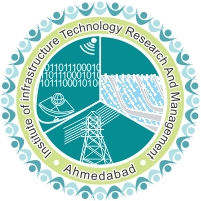Enhanced Conjugate Gradient Method for Heat Flux Estimation in Laminar and T-junction Turbulent Mixing Flow
Authors :- S Shah, AK Parwani
Publication :- Heat Transfer Engineering, May 2022
In this paper, the Jaya algorithm is coupled with the traditional conjugate gradient method (CGM) for solving the inverse heat transfer problem. The coupling of two algorithms is termed as enhanced conjugate gradient method (ECGM). Two different applications have been considered to determine the accuracy and stability of ECGM. First, the algorithm is applied in a steady-state two-dimensional laminar flow through a duct for the boundary heat flux estimation. The accuracy of estimation has been compared with traditional CGM by calculating the root mean square (RMS) error. The ECGM algorithm (RMS =0.142 kW/m2) is found to be more accurate than conventional CGM (RMS = 0.198 kW/m2). ECGM is then applied to determine the peripheral variation of heat flux at the fluid-solid interface of a tube at a section downstream to the T-junction. The experimental temperature readings at the outer periphery of the tube required in the inverse algorithm are simulated by solving the direct heat conduction problem. Here, the heat flux at the fluid-solid interface is obtained by solving the governing equations of the turbulent flow by using commercial computational fluid dynamics software. ECGM is found to be a stable and accurate inverse heat transfer algorithm.

